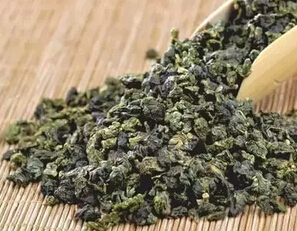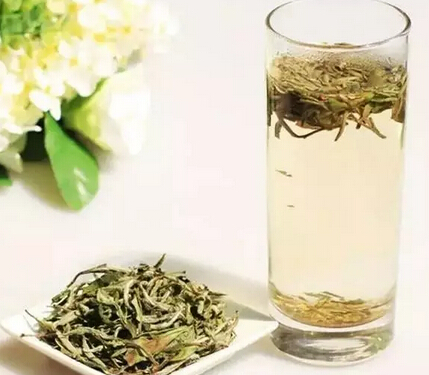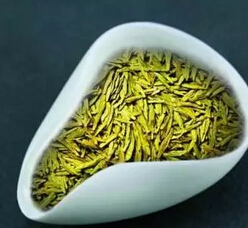For individuals, whether it's psychological dependency or physiological effects, anything that alleviates stress holds value. However, using smoking and alcohol for stress relief comes at the cost of physical harm. The link between smoking and increased lung cancer risk is widely known. Generally, smoking a pack a day over the long term can increase lung cancer risk by more than tenfold. Similarly, alcohol's damaging effects on the liver are well-documented. Thus, smoking and drinking involve a trade-off between 'stress relief' and 'physical harm.'

Tea, on the other hand, has a positive reputation. Rich in antioxidants, it has demonstrated various health benefits in cell and animal studies. While these effects are less consistent in human trials, tea poses no harm, making it a case of 'benefits are a bonus, no benefits mean no loss.'
The saying goes, 'Smoking, alcohol, and tea are a family'—each has been extensively studied for its health effects, with fairly clear conclusions. But what happens when they are combined? Research on this is limited, but some insights emerge.

Smoking and alcohol together are like two troublemakers joining forces, causing more harm than they would individually. Cigarettes contain numerous compounds that can cause cancer or genetic mutations, such as polycyclic aromatic hydrocarbons, nitrosamines, nicotine, and acetaldehyde. Alcohol itself isn't strongly carcinogenic, but its first metabolic byproduct, acetaldehyde, can bind to DNA, leading to cancer or mutations. Acetaldehyde is classified as a Group 1 carcinogen. These effects occur through biochemical changes in the body, and the carcinogens in alcohol and tobacco can amplify each other's effects.
A 2004 study by Finnish researchers supports this theory. They measured acetaldehyde levels in human saliva and found that both smoking and drinking significantly increased acetaldehyde concentrations. Moreover, smoking after drinking raised acetaldehyde levels even higher than the sum of the increases from smoking and drinking separately. A 2009 literature review by South African researchers examined the effects of smoking and drinking during pregnancy on premature birth. The conclusion was that both increase the risk of premature birth, and combining them raises the risk even more than their individual effects combined. Similar patterns were observed for fetal weight and development.

The harm from smoking primarily results from oxidative stress caused by free radicals. Tea, with its strong antioxidant properties, might counteract some of this damage. A 2009 study by the University of Hong Kong exposed mice to cigarette smoke for an hour daily, finding a gradual increase in 8-isoprostane (a marker of oxidative stress) levels, which tripled after 56 days compared to non-smoking mice.

Additionally, levels of superoxide dismutase and catalase rose significantly, indicating severe oxidative stress. Another group of mice exposed to smoke but given green tea showed levels similar to non-smoking mice. The researchers attributed this to catechins in green tea neutralizing free radicals from smoking. A 2010 study by Indian researchers treated human red blood cells with catechins and cigarette smoke, yielding similar results. Earlier studies in 2003 and 2007 with black tea and guinea pigs also demonstrated tea's protective effects against smoking-related harm. A 2012 study by Chongqing Medical University used theaflavins (from black tea) on smoke-exposed rats, showing dose-dependent mitigation of smoking damage.

Similar effects were observed in osteoporosis. A 2011 German cell study found that smoking promotes bone loss, while green tea extract reduces oxidative damage and increases bone density. A 1997 South Korean study used 'sister chromatid exchange frequency' as a cancer risk indicator. Smokers with over a decade of smoking and 10+ cigarettes daily had an average frequency of 9.46, compared to 7.03 in non-smokers. Smokers who also drank tea averaged 7.94—lower than smokers who didn't drink tea but still higher than non-smokers. Coffee did not show this protective effect.
Research on alcohol and tea interactions is scarcer but still insightful. Activation of pancreatic stellate cells leads to fibrosis and inflammation, a major cause of chronic pancreatitis triggered by alcohol. A 2006 Japanese study treated cultured pancreatic stellate cells with alcohol, observing lipid peroxidation and other biochemical abnormalities. Adding catechins alleviated or reversed these effects.

A 2004 Polish study on rats found that both tea and alcohol altered physiological markers, often in opposite directions. When both were given, the markers reverted closer to control levels.
While these studies lack the rigor of comprehensive human trials, the current evidence suggests: If smoking, alcohol, and tea were a family, smoking and alcohol would be the reckless troublemakers, causing more harm together than apart. Tea, meanwhile, struggles to repair the damage they cause. This doesn't mean tea eliminates the risks of smoking and drinking but highlights that the best way to protect your health is to avoid smoking and alcohol. If quitting isn't an option, tea can help mitigate some of the damage.